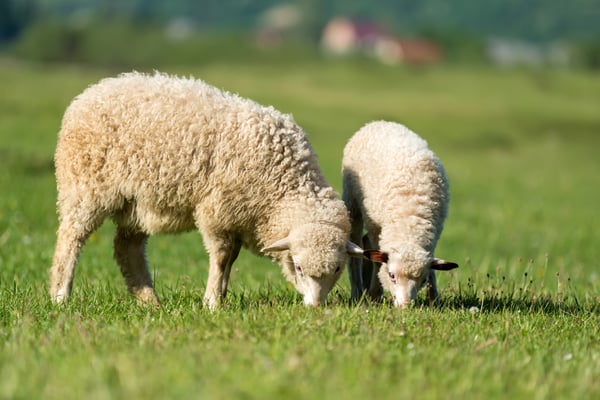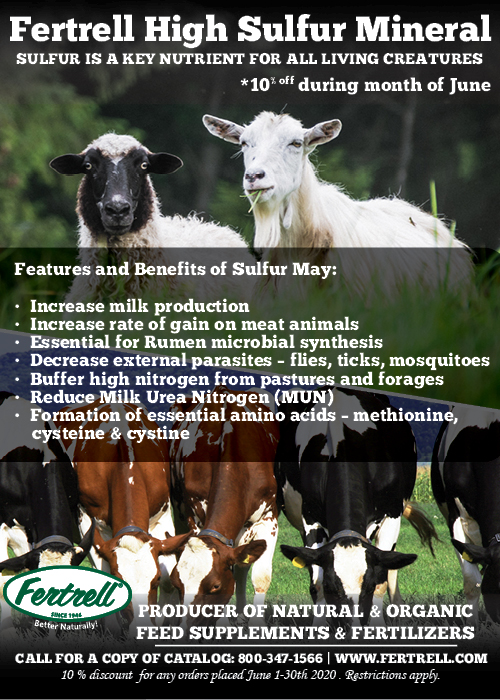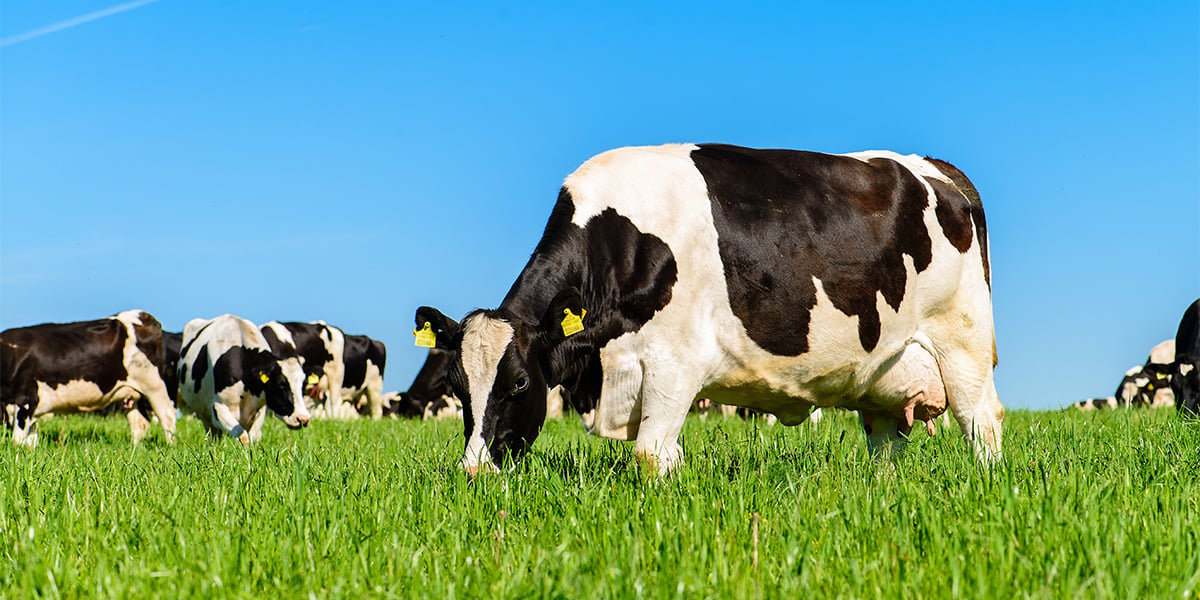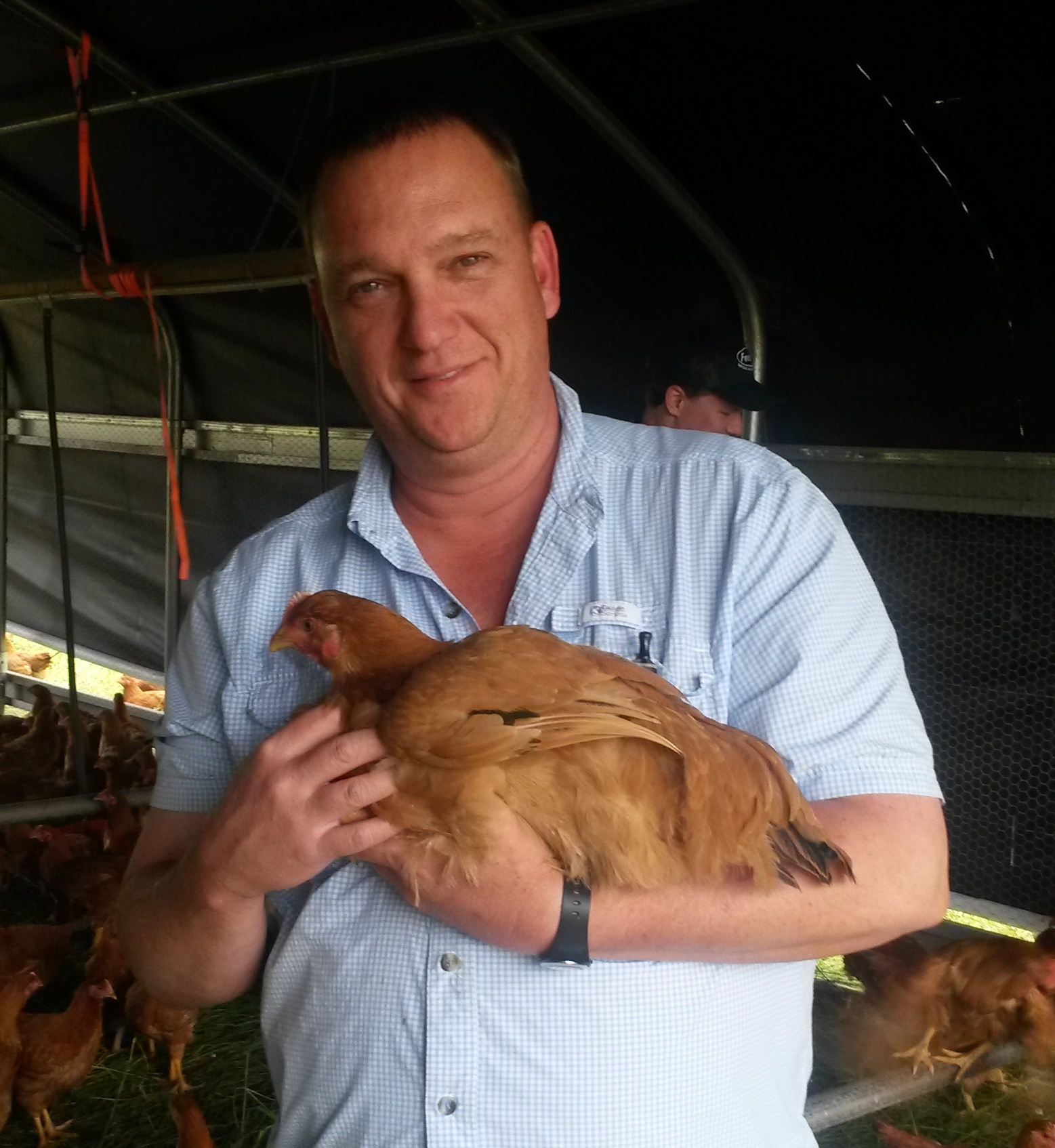Sulfur is a key nutrient for all living creatures. It is an essential nutrient that we often overlook. For many years sulfur was free. It was being emitted by coal burning power plants, diesel fuel vehicles and other sources. This sulfur was caught in the clouds and returned to the earth by rainfall. However, this rain was acidic due to the sulfur dioxide and Nitric acid. The acid rain was causing negative side effects in lakes and water ways killing fish and reptiles in lakes and ponds. Also killing some types of trees and other vegetation. With acid rain causing environmental problems the EPA made laws and set restriction on sulfur and nitric acid emissions reducing the sulfur levels.
As I mentioned previously sulfur is an essential nutrient for cattle and other livestock. The sulfur helps the animal to utilize more of the proteins from the grasses that they consume. How does this work? In most grazing forages the grasses and legumes tend to be low in sulfur in the soil and therefore the plant tissue. Meanwhile the plant is full of nitrogen. Nitrogen is the raw ingredient of protein. Most laboratories actually test for nitrogen in forage samples. To my knowledge there are not any laboratory test for true protein. Instead, labs will test for the amount of nitrogen in the feed, then multiply nitrogen by 6.25 to get a crude protein level.
This is the universally excepted method for estimating protein values. What is not calculated is the relationship between nitrogen and sulfur. In the organic world of agronomic knowledge, we know that the relationship of nitrogen to sulfur is best at 10 to 1 or less. When the nitrogen to sulfur ratio is at or below 10 to 1 more of the nitrogen in the forages or pastures is better utilized by the animal. When the nitrogen is better utilized the Milk Urea Nitrogen (MUN) levels will be better. The milk protein levels will be higher. The animal’s immune system will function at a higher level. The animal’s stress level will be lower. Livestock stress is the key factor to fly and external parasite issues. The flies can sense or detect which animals are struggling. Watch your herd sometime. You will see the flies are more attracted to animals that are lower body condition or struggling with heat stress or other type of stress that is holding them back from being truly healthy. Add all of these benefits up and it means more dollars in your pocket!
Sulfur is always best served through the soil to the plant to the animal. But this is not always possible. Sometimes the weather doesn’t let you on the land to apply the much-needed sulfur. Sometimes the pocketbook doesn’t always allow the expense of spreading sulfur. If you didn’t get it spread on the ground for the plants to pick it up, you can feed it or free choice it to the livestock while eating the pastures or forages that may be low in sulfur. Last year Fertrell started offering High Sulfur Livestock mineral. This is designed to help livestock manage excess nitrogen from early and late season lush pastures.

Let’s go back to protein and nitrogen for a moment. Previously, it was believed that a true protein is made up of minimum 3 amino acids. Many protein molecules have many more amino acids. There are 20 recognized amino acids. Our bodies and our livestocks’ digestive tract can breakdown protein to amino acids and recombine them into true proteins that their metabolism needs. Natural processes are really amazing sometimes! Where does sulfur come in? Well, 2 essential amino acids require sulfur to be formed. Methionine and Cysteine are two of the four sulfur based amino acids. You may wonder if there are 20 amino acids why are these 2 important? Methionine has been proven to be a critical part of reproductive performance for ruminants. Cysteine is required for methionine to be fully functional. Methionine needs cysteine to work is the bottom line. With methionine and cysteine, you get better breeding. Over my 24 years of animal nutrition work at Fertrell, I have seen the lack of methionine in our livestock diets. Mostly in a slight lag in breeding conception rates. I have also noticed farmers with better forage sulfur levels have always had better animal reproduction.
This all adds up to sulfur in the plant or animal will enable more types of amino acids to be formed. Which means more true protein chains will be formed. Which leads to the animal being more efficient utilizing nitrogen to make true protein. All of this means lower MUNs and stress. It also supports better milk protein and reproduction. The reduced stress and MUN will reduce the likelihood of flies and external parasites attracted to your animals. I have also observed that dairy cattle with lowered stress levels tend to maintain lower Somatic Cell Counts. Just one more possible benefit.
Sulfur in the soil is best. But sulfur in the soil or the animal’s diet is very important. In either case if we can get the nitrogen to sulfur ratio at or under 10 to 1, life gets better. A ratio of 8 to 1 seems to be better yet. But may not be cost effective. Consider supplementing your soils with sulfur on an annual basis. If this is not possible or realistic for your situation, consider supplementing your livestock with a high-quality sulfur supplement. Be cautious not to use powdered sulfur. This may cause eye and nose irritation to both you and your animal. A flake or mini prilled sulfur will be better to manage and less dusty. However, you choose to address this is up to you. But don’t forget the sulfur. If you didn’t put it on early this spring or last fall, you may need to supplement your livestock. The nice part is, if they don’t absorb it or make amino acids, they will deposit the sulfur on the soil for later plant use. Happy Grazing!
Features and Benefits:
- Sulfur may:
- Increase milk production
- Increase rate of gain on meat animals
- Essential for Rumen microbial synthesis
- Decrease external parasites – flies, ticks, mosquitoes
- Formation of essential amino acids – methionine, cysteine & Cystine
- Buffer high nitrogen from pastures and forages
- Reduce Milk Urea Nitrogen (MUN)
Cautions:
- Sulfur may have a toxicity
- Do not use as the only free choice mineral
- Do not mix in feed above 2 oz. per head per day – mature animals
- May cause lethargy, blindness, poor coordination – University of MN
More Sulfur:
- Seeing sulfur deficiencies in most forage and soil samples
- Soils are depleted in most areas of the U.S.
- Livestock need (more) sulfur
- Healthier soils, plants, and animals.

Our production facility is currently operating. We are shipping fertilizers, soil amendments, and animal nutrition products daily to support farmers and home gardeners. Visit us at www.fertrell.com.

